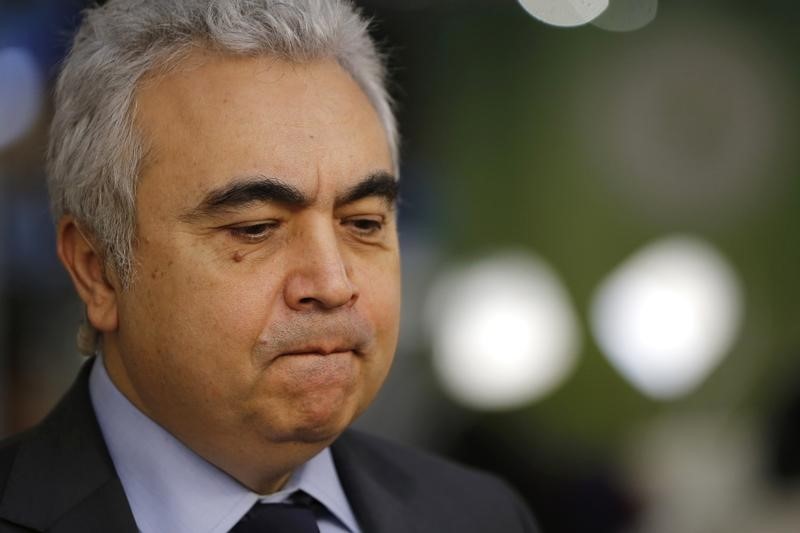By Bate Felix and Barbara Lewis
PARIS/BRUSSELS (Reuters) - The West's energy watchdog, the International Energy Agency, faces a possible legal split from its parent body following decades of friction and fresh disagreements over cooperation with China, a document seen by Reuters shows.
Any divorce from the Paris-based founder, the Organisation for Economic Co-operation and Development (OECD), might complicate funding and confuse governance of the IEA, whose role includes coordinated stocks releases to address global oil shortfalls.
The dispute also highlights the complexity of cooperation between China and Western organizations such as the OECD, which has a stated commitment to democracy and market economies.
An OECD document, seen by Reuters, said that its council sent a letter to the IEA in April proposing a separation, citing years of IEA resistance to OECD rules on administration, financial audits and the China issue.
"The IEA started negotiating with China in 2016 to establish an IEA center in Beijing, without prior consultation with the OECD which, as the IEA was aware, was itself negotiating with China to create a policy center and a country office," the document said.
The OECD declined to comment, as did an IEA spokeswoman, who said any separation would be a decision for member states.
Created in 1961 to stimulate economic progress and world trade, the OECD originated from the Organisation for European Economic Co-operation, set up in 1948 to help administer the Marshall Plan to reconstruct Europe with U.S. financial aid.
The IEA was established in 1974 at the proposal of U.S. Secretary of State Henry Kissinger to help industrialized nations deal with the oil crisis after the Arab embargo squeezed supplies and sent prices surging.
Since then, energy markets have changed radically. OPEC no longer has the same power, non-IEA China has overtaken the United States as the biggest energy user and the shale revolution has turned the latter into a net exporter.
The IEA's Executive Director Fatih Birol has made strengthening ties with emerging powers the agency's top priority, choosing China for his first trip into the job and breaking with the practice of previous chiefs, who began their tenure by visiting an IEA country.
Should a separation take place, the OECD said it would "assist and support the IEA to ensure that the productivity and effectiveness of the IEA remain unimpaired during transition".
But it also said that it would then be up to "the IEA member countries to provide the IEA with all the necessary powers and capacities to administer itself as a fully independent international organization."
Compared with the much bigger OECD, which groups 34 of the world's leading economies and has about 2,500 staff, the IEA has 240 employees and 29 member states, all of which are also OECD members.
Under its autonomous status, its governing board consists of energy ministers of member countries, which contribute four fifths of its budget of around 27 million euros ($30.74 million) with the rest generated from sales of publications.
Douglas Hengel, a former U.S. diplomat who liaised with the IEA and is now at the German Marshall Fund think-tank, predicted that member states would prefer to retain the current status of the IEA rather than make it just another department of the OECD or an entirely independent body.

"I think it's a tempest in a teacup kind of issue," he said. "I don't think the member states will want to change."